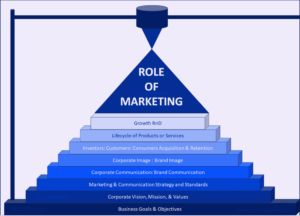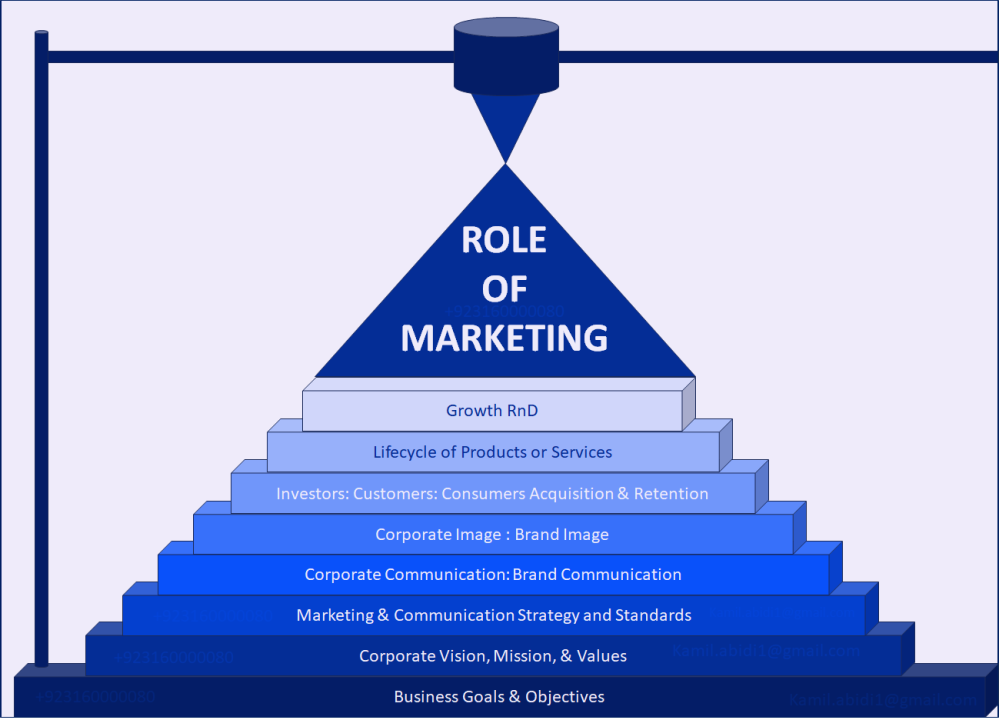
In today’s interconnected world, marketing plays an integral role, not just in business but across every aspect of modern society. Marketing shapes how people perceive brands, influences consumer behavior, and drives innovation. But its impact goes well beyond sales numbers and brand growth; marketers are fundamental in fostering societal change, supporting economic stability, and promoting sustainable choices. This article delves into why marketers are essential to society, the diverse roles they fulfill, and how they drive positive change.
The Vital Role of Marketing in Society
Marketing is often viewed as a business function, essential to driving profit and establishing brand recognition. However, it has evolved into much more than just a business necessity. Marketing influences societal behavior, values, and the decisions people make every day, from the products they buy to the ideas they support. Here’s why marketers hold an influential position in society:
1. Creating Awareness and Educating Consumers
One of the core roles of marketers is to inform and educate the public. Through creative advertising and communication strategies, marketers provide information about products and services, enabling consumers to make informed decisions. This role extends beyond just commercial products; marketers also spread awareness about health, safety, and social issues, such as environmental conservation, mental health, and social justice causes.
For instance, marketing campaigns around sustainability educate people on eco-friendly choices and encourage them to adopt more sustainable lifestyles. Marketers help bridge the knowledge gap between complex issues and the average consumer, thereby fostering a well-informed society.
2. Shaping Cultural and Social Trends
Marketing is a powerful tool in shaping cultural and social trends. Brands often leverage current events, social movements, and emerging trends to connect with their audience. As a result, marketing can influence society’s values, norms, and expectations. For example, campaigns that focus on diversity and inclusion are not just selling points; they help normalize and promote acceptance of different cultures, identities, and backgrounds.
Consider how beauty brands have shifted from promoting stereotypical standards to emphasizing self-love, inclusivity, and authenticity. These marketing messages shape societal standards and encourage people to embrace diversity and self-confidence. Through their campaigns, marketers contribute to shaping a more inclusive and open-minded society.
3. Boosting the Economy and Supporting Job Creation
Marketing drives economic growth by encouraging consumer spending. As marketers create demand for products and services, businesses experience higher sales, which in turn fuels job creation. From product manufacturing to distribution and sales, every aspect of the economy benefits from successful marketing efforts.
The digital era has amplified this economic impact. Marketers have developed e-commerce, mobile marketing, and digital campaigns that enable businesses to reach global audiences. This expansion supports small businesses, empowers entrepreneurs, and brings greater job opportunities in digital marketing, content creation, analytics, and advertising. Consequently, marketing sustains economic growth and strengthens the labor market.
4. Encouraging Innovation and Product Development
Innovation is the heart of successful marketing. To remain competitive, businesses must constantly innovate and adapt to meet consumer needs, and it’s marketers who communicate these needs back to the companies. By studying trends, analyzing consumer data, and understanding what the public desires, marketers play a pivotal role in product development.
For instance, as demand for sustainable and ethically-produced products has grown, many companies have introduced eco-friendly lines or revamped their processes to be more environmentally conscious. Marketers are crucial in identifying these shifts in consumer expectations, pushing businesses to improve and develop better products that benefit both customers and the environment.
5. Promoting Positive Behavioral Change
Beyond consumerism, marketing can inspire people to adopt healthier and more beneficial behaviors. Public service campaigns often focus on critical issues like health, safety, and environmental conservation. Marketers working on these campaigns use strategies to shift public attitudes and behaviors for societal benefit.
Consider anti-smoking campaigns, which use a mix of emotional appeal, statistical data, and impactful visuals to encourage smokers to quit. Similarly, campaigns promoting road safety, anti-bullying, or mental health awareness all utilize marketing to reach people effectively. Through these campaigns, marketers empower individuals to make healthier choices and contribute to a safer society.
6. Building and Strengthening Community Relations
Marketers today emphasize building strong community connections. Businesses, especially large corporations, are expected to be responsible members of society, contributing to social and environmental causes. Many brands have embraced Corporate Social Responsibility (CSR) initiatives, focusing on ethical sourcing, charitable donations, and community development.
Marketers communicate these CSR efforts, building goodwill between companies and communities. When consumers feel that a brand aligns with their values, they are more likely to support it. Thus, marketing builds bridges between corporations and the public, creating trust and establishing a brand’s reputation as a socially conscious entity.
Key Marketing Strategies that Influence Society
To maximize their impact, marketers employ a variety of strategies that influence society and consumer choices:
- Content Marketing: Produces valuable, informative content that educates and informs.
- Influencer Marketing: Uses personalities that resonate with audiences to drive awareness and trust.
- Social Media Campaigns: Facilitates open dialogue and direct interaction with consumers, fostering community.
- Cause Marketing: Connects brand messages with social causes, allowing consumers to align purchases with their values.
The Future of Marketing in Society
The role of marketers will continue to evolve as societal needs change. With a focus on sustainability, ethical practices, and responsible consumerism, marketers will play an increasingly prominent role in promoting greener choices and encouraging ethical behavior. Advances in data analytics and artificial intelligence will enable more precise targeting, allowing marketers to better understand and respond to individual preferences and societal needs.
Conclusion
Marketers are more than just promoters of products—they are agents of change, educators, community builders, and innovators. By shaping cultural trends, driving economic growth, and advocating for societal well-being, marketers fulfill a vital role in society. As they continue to adapt to societal changes and technological advancements, marketers will remain central to fostering a more informed, inclusive, and sustainable world. Their influence is undeniable, as marketing not only shapes consumer behavior but also steers society toward a more progressive future.

